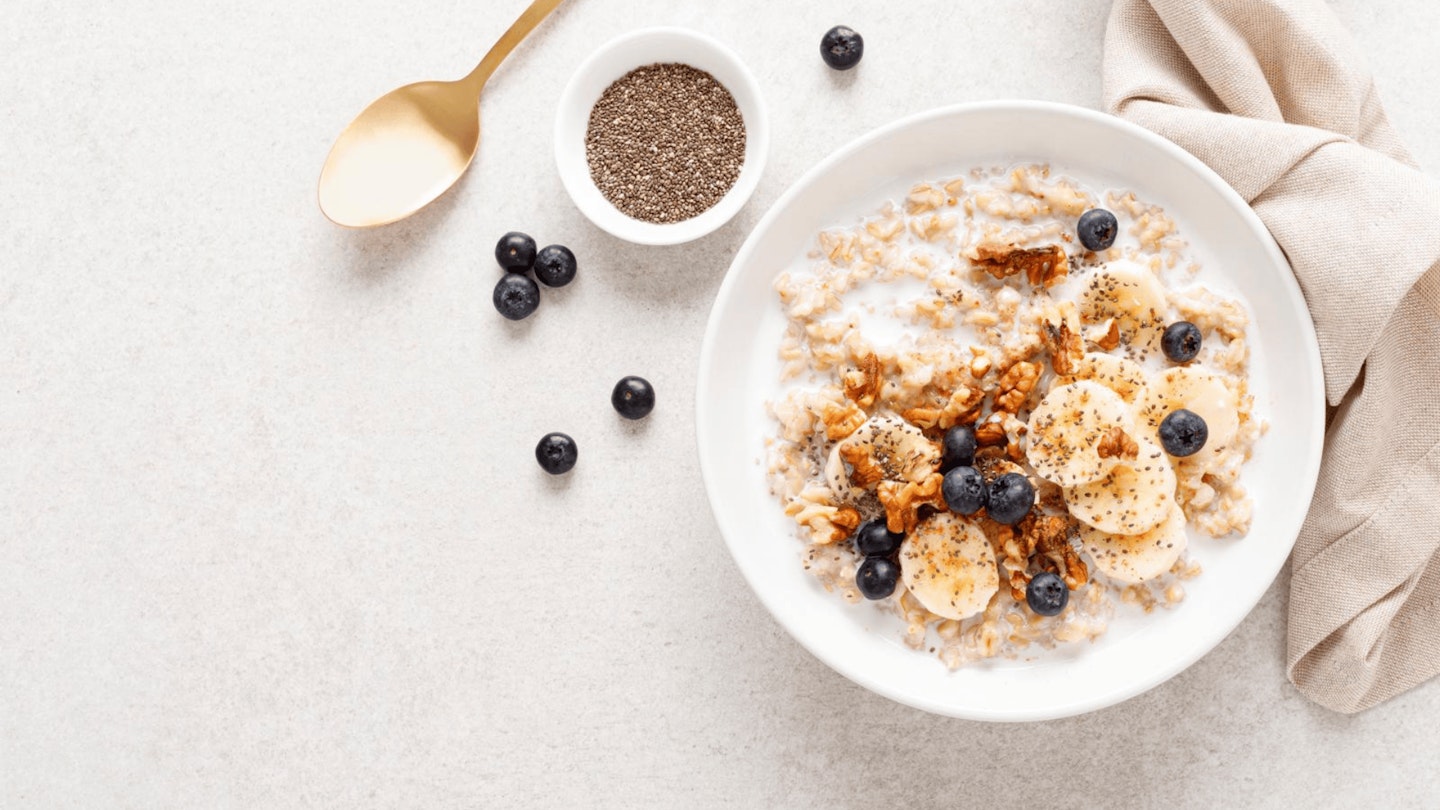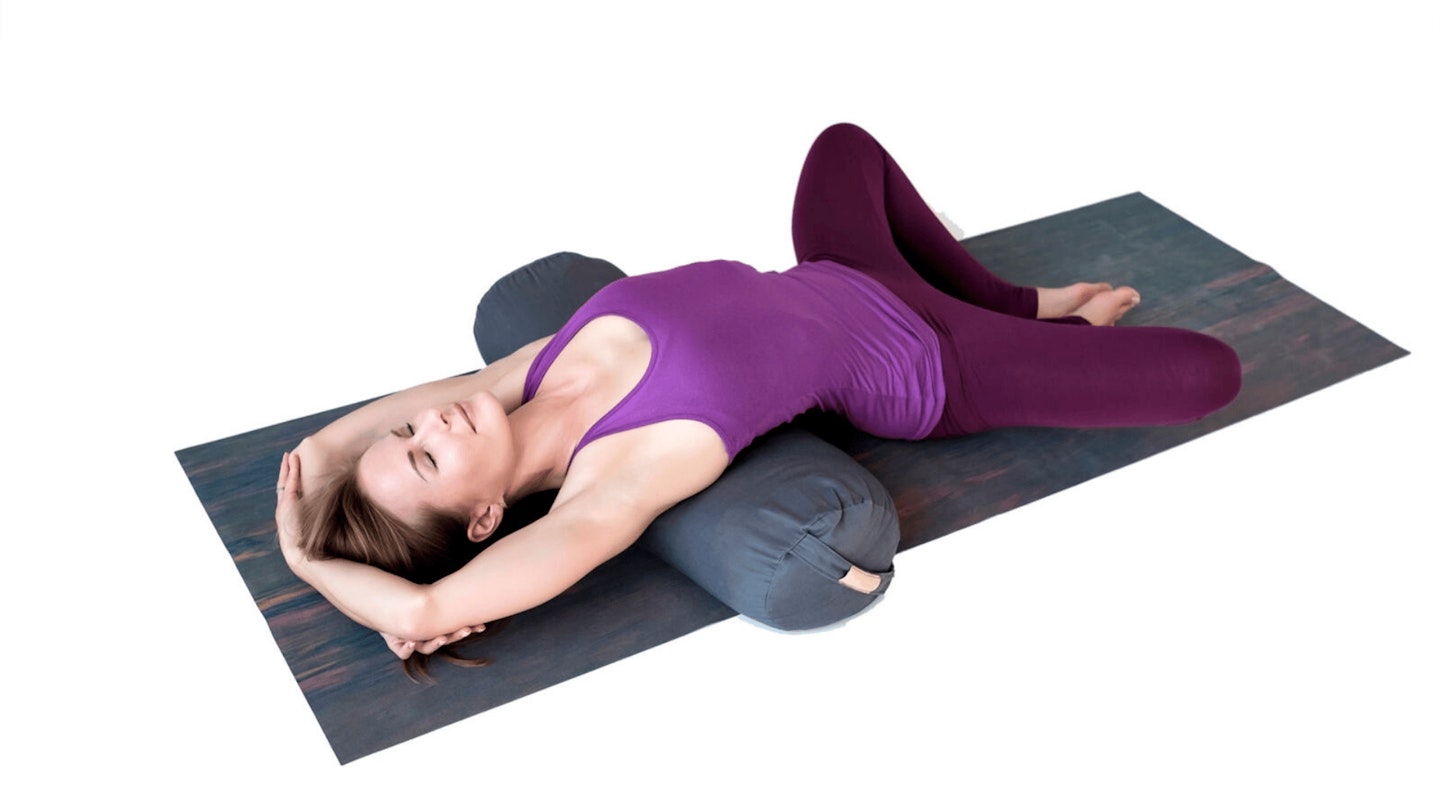Feeling drained and running on empty? You’re not alone, many of us struggle with low energy, whether it’s from busy schedules, poor sleep, or daily stress. The good news is, you don’t need weeks to feel better. We’ve asked leading nutrition and fitness experts to share their proven, practical tips for boosting energy in just 24 hours — so you can wake up tomorrow feeling refreshed, recharged, and ready to take on the day.

1. Energise in the shower
Cold water immersion has gained lots of press in recent years, with many people swearing by its ability to improve your health – and there's no doubt that even a quick blast will help you feel more awake. "Add a few seconds of cold to the end of your shower," says yoga expert Jenny Clark.
"Keep your breath steady as you do so, breathe through it and it will get easier. Slowly build up to a minute or two, adding 10 seconds a day. Of course, be careful and sensible, but it is such a great way to boost your immune system and energy levels."
2. Step outside
A better night's sleep tonight is reliant on your morning behaviour, and just a few minutes of sunlight can help. "Getting out into natural daylight as early as possible (even in the cold winter days) can help regulate your circadian rhythm," says weight loss coach, Dr Aishah Iqbal. "This has been shown to have a positive impact in helping to get better sleep." Plus, studies have found that regular moderate exercise – such as a quick morning stroll – can increase energy levels by 20 per cent and decrease fatigue by 65 per cent.
But winter sunlight won't be powerful enough to keep your Vitamin D levels up. "Ensuring you are getting enough Vitamin D, especially in the colder months can also be key in maintaining energy levels," says Aishah. "If you take a Vitamin D supplement, it's best to have it in the morning too."

3. Pile on the protein
Forgo sugary cereal in favour of a breakfast that can really keep you going. "A protein-based breakfast is so important and will kickstart your energy for the whole day," says nutritional therapist Thalia Pellegrini. "It can also make the difference between that mid-morning slump and being energised all morning, without reaching for the biscuits before lunch. Scrambled eggs on wholewheat toast is a quick and easy option. Or go for porridge – but reduce your oats by half, add in chia seeds and cook the two together with your milk.
“Once cooked, stir through a tablespoon of ground almonds and chop up some banana or add some berries."
4. Sing along
Pop on the radio for a quick energy blast – singing and tapping your feet or fingers to a great song has been shown to significantly improve energy levels and reduce fatigue.
5. A lunch that lasts
It's easy to grab whatever's to hand for lunch, but a little bit of thought could help positively shape the rest of the day. "Often the reason we experience that afternoon energy slump is because we haven't had a sustaining lunch – think protein again," says Thalia. "Aim for a lunch with some chicken, tofu or salmon to refuel you for the afternoon. Add in some complex carbohydrates like brown rice or sweet potato and always aim to have some vegetables on the side. If you do feel like you need a boost mid-afternoon, opt for nuts or seeds with some fresh fruit – my favourite is walnuts with a handful of blueberries."

6. Stop your coffee
When we're tired, caffeine can feel like our best friend but that artificial energy can come at a cost. "The time of day when we consume caffeine is particularly important in our overall energy levels, given how it can impact sleep," warns Aishah. "As we age, we can become more sensitive to caffeine, with it remaining in our bloodstream for much longer. As a general rule of thumb, limiting consumption to the morning and early afternoon can help to ensure it doesn’t impact our sleep later in the evening."
6. ...Swap it for a quick sniff!
Instead, try breathing in some peppermint essential oil to perk you up, particularly if you're feeling physically tired. It's been shown in studies to reduce the fatigue that can follow exercise.
7. Lower stress
If things are getting on top of you, give your mood a quick and natural boost: "'Calm to happy in one minute' is a quick tool to reduce stress, and help you feel more calm, happy, confident, successful and energised," says mindfulness Pilates teacher Beverley Densham. Here’s how to do it, according to Beverley:
-
Sitting or standing, close your eyes.
-
Take five relaxing breaths in and out, in through your nose and out through your mouth relax, relaxing more on each out breath, repeating the affirmation 'well done', in your head.
-
To energise, open your eyes and punch your arms in the air 10 times, saying 'well done' aloud and smiling.
You might feel silly, but trust us – it helps!

8. Resist the siren song of sugar
After a long day, there's often nothing more tempting than scoffing a packet of biscuits on the sofa in the evening, but messing with your blood sugar can affect your sleep. "I recommend a simple breathing exercise when your energy deserts you in the evening: the 4-7-8 breath is perfect," says Thalia.
"Take in a breath through your nose for the count of four, hold for the count of seven and release slowly for the count of eight. It can take some practice, but three or four rounds can be very energising. Plus, I always recommend a small snack at bedtime, especially if you tend to wake in the early hours. An oat cake with some hummus, or nut butter with a banana are good choices."
9. Stretch to reset
A spot of yoga can help you release the tensions of the day and help you prepare for a good night's rest. "One nice way to reset, particularly in the evening, is to do supta baddha konasana, or reclined bound angle pose," says Jenny.
"Many of us spend a lot of the day sitting and can end up hunched over with rounded shoulders, and this pose helps to counteract that. Bring the soles of the feet together and the knees wide, and then lie back. You can support the knees and the spine with pillows or cushions. Then bring the hands to the shoulders and give yourself a firm shoulder and neck massage, and draw your shoulders down away from the ears. Just stay in this posture for a few minutes, focusing on your breath and sensations within the body."
Meet the experts
-
Jenny Clark is a yoga teacher and founder of The Wild Times.
-
Dr Aishah Iqbal is a medical doctor, personal trainer and weight loss coach.
-
Thalia Pellegrini is a BANT-registered nutritional therapist.
-
Beverley Densham is a mindfulness Pilates teacher and author.
Lizzy Dening is an award-winning journalist and has spent many years working for Yours magazine both in-house and as a freelance writer and editor. Her specialisms include health and fitness, interviews (both real life and celebrity) and women’s issues. She’s also written for publications including Grazia, Vogue and the Guardian.
